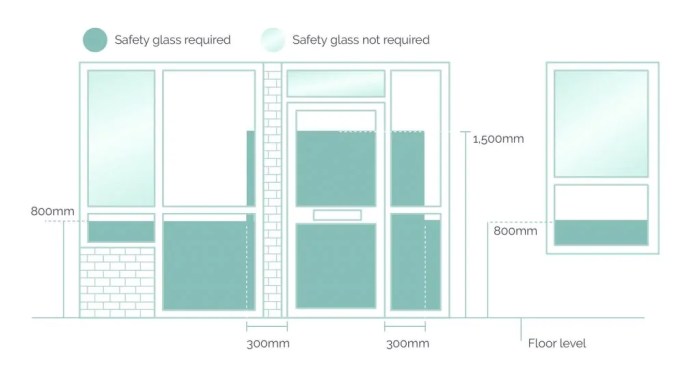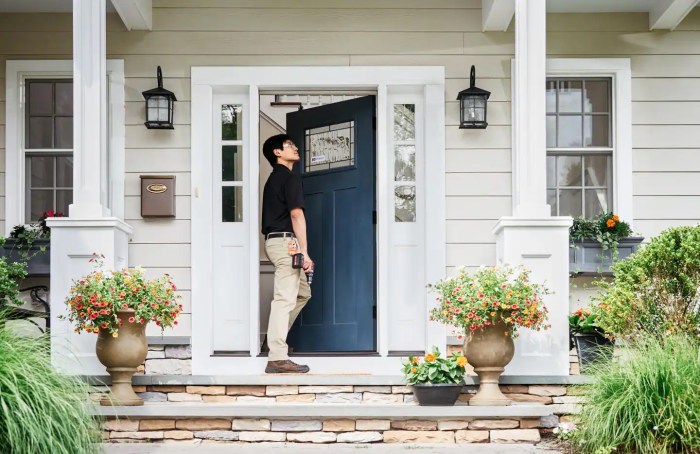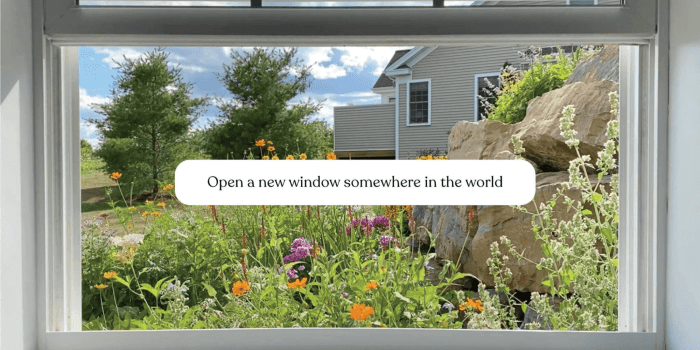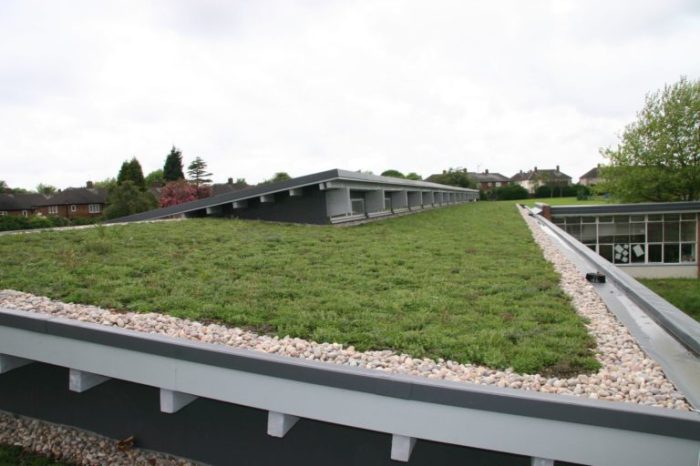Long-Term Roofing Maintenance Contracts: Worth It?
Long-Term Roofing Maintenance Contracts: Worth It? sets the stage for this enthralling narrative, offering readers a glimpse into a story that is rich in detail with casual formal language style and brimming with originality from the outset.
Exploring the benefits, cost-effectiveness, services covered, inspection frequency, warranty considerations, and contractor selection criteria of long-term roofing maintenance contracts sheds light on the value they bring to homeowners and building owners alike.
Importance of Long-Term Roofing Maintenance Contracts
Regular maintenance of your roof is crucial to ensure its longevity and structural integrity. Investing in a long-term roofing maintenance contract can provide numerous benefits that go beyond just routine inspections. By having a contract in place, you can:
Preventing Costly Repairs
- Regular inspections and maintenance can catch small issues before they escalate into major problems, saving you from expensive repairs down the line.
- Addressing minor damages promptly can prevent leaks, mold growth, and other issues that could compromise the safety and comfort of your home.
Extending Roof Lifespan
- Regular maintenance, such as cleaning gutters, removing debris, and replacing worn-out parts, can help extend the lifespan of your roof significantly.
- Proactive maintenance can also help identify areas that may be prone to damage and take preventive measures to reinforce those weak spots.
Cost-Effectiveness Analysis
Regular maintenance of a roof can significantly impact the overall cost-effectiveness of roof care. Let's delve into the comparison between the costs associated with long-term maintenance contracts and one-time repairs, the potential savings from regular maintenance, and the financial implications of not having a maintenance contract.
Cost Comparison
Regular maintenance contracts may seem more expensive upfront compared to one-time repairs. However, when you consider the cumulative costs of multiple repairs over the years, maintenance contracts often end up being more cost-effective in the long run.
Saving Money with Regular Maintenance
One of the key benefits of long-term maintenance contracts is that they help identify and address small issues before they escalate into major problems that require costly repairs. By investing in routine maintenance, you can extend the lifespan of your roof, prevent leaks, and avoid the need for extensive repairs that can be financially burdensome.
Financial Implications of Not Having a Maintenance Contract
Neglecting regular maintenance of your roof can lead to a host of issues that may end up costing you significantly more in the long term. From water damage to structural issues, the consequences of not having a maintenance contract can result in expensive repairs, premature roof replacement, and potential damage to your property.
Types of Services Covered

Roofing maintenance contracts typically include a range of services aimed at keeping the roof in optimal condition and preventing costly repairs in the future.
- Regular Inspections: Scheduled inspections allow professionals to identify any issues early on and address them promptly, preventing them from escalating.
- Cleaning and Debris Removal: Removing debris and keeping the roof clean helps prevent water pooling and deterioration of roofing materials.
- Gutter Maintenance: Cleaning and repairing gutters ensure proper drainage and prevent water damage to the roof and the structure.
- Sealant Application: Applying sealants to vulnerable areas helps extend the lifespan of the roof and enhances its resistance to elements.
- Minor Repairs: Addressing small issues promptly can prevent them from turning into major problems that require extensive repairs.
Importance of Each Service
Regular inspections are crucial to catch any issues early before they worsen and lead to costly repairs. Cleaning and debris removal prevent water damage and deterioration, while proper gutter maintenance ensures effective drainage and prevents leaks. Sealant application helps protect the roof from weather damage, and minor repairs prevent small issues from escalating into major problems.
Additional Beneficial Services
In addition to the essential services mentioned above, some long-term roofing maintenance contracts may also include services such as:
- Emergency Repairs: Providing quick response and repairs in case of unexpected damage due to severe weather or accidents.
- Roof Coating: Applying protective coatings to extend the roof's lifespan and improve energy efficiency.
- Roofing System Upgrades: Upgrading certain components of the roofing system to enhance performance and longevity.
Frequency of Inspections and Maintenance
Regular inspections and maintenance are crucial components of a long-term roofing maintenance contract. By conducting these activities at scheduled intervals, you can ensure the integrity and longevity of your roof. The frequency of inspections and maintenance visits can vary depending on various factors such as the type of roof, weather conditions, and any previous issues that need monitoring.
Optimal Frequency of Maintenance Visits
It is generally recommended to have maintenance visits at least twice a year, ideally in the spring and fall. These visits allow professionals to assess the condition of the roof, identify any damage or potential issues, and perform necessary repairs or preventative measures.
Regular maintenance visits help in early detection of problems, which can prevent costly repairs or even premature roof replacement. By addressing issues promptly, you can extend the lifespan of your roof and maintain its efficiency in protecting your property.
Additionally, factors such as extreme weather events or the presence of nearby trees can impact the frequency of maintenance visits. In such cases, it may be advisable to schedule more frequent inspections to ensure the roof remains in optimal condition.
Warranty and Guarantee Considerations
When it comes to long-term roofing maintenance contracts, warranties and guarantees play a crucial role in ensuring the quality and durability of the roofing system. These aspects provide a sense of security and assurance to both homeowners and building owners, offering protection against unforeseen issues and expenses.
Coverage under Warranties
Warranties typically cover various aspects of the roofing system, including materials, workmanship, and sometimes even installation. They may guarantee that the roof will remain leak-free for a certain period or provide remedies in case of defects or failures. Additionally, some warranties may also cover repairs or replacements under specific conditions.
- Materials: Most warranties cover defects in roofing materials, ensuring that they will perform as expected for a specified period.
- Workmanship: Some warranties guarantee the quality of workmanship and installation, protecting against errors or issues arising from poor installation practices.
- Leak-free Guarantee: Many warranties include a leak-free guarantee, assuring that the roof will remain watertight and free from leaks during the warranty period.
Peace of Mind for Homeowners and Building Owners
Having warranties in place can provide peace of mind to homeowners and building owners, knowing that their investment is protected and that any unexpected issues will be addressed without additional costs. Warranties serve as a form of insurance against defects and failures, giving property owners confidence in the longevity and performance of their roofing system.
Warranties offer an added layer of protection and assurance, ensuring that the roofing system will function as intended and that any issues will be rectified promptly.
Contractor Selection Criteria
When choosing a contractor for a long-term maintenance contract for your roofing needs, there are several key factors to consider to ensure you select a reliable and trustworthy professional who can provide quality services. It is essential to compare and contrast different contractors based on their experience, reputation, and pricing to make an informed decision.
Experience
- Look for contractors with extensive experience in the roofing industry, particularly in the type of roofing system you have. Experienced contractors are more likely to identify and address issues effectively.
- Check for references and reviews from previous clients to gauge the quality of work and level of satisfaction.
Reputation
- Consider the reputation of the contractor within the community. A contractor with a solid reputation is more likely to deliver on promises and provide excellent service.
- Verify if the contractor is licensed, insured, and bonded to protect yourself from liability in case of accidents or damages during maintenance work.
Pricing
- While pricing is important, it should not be the sole determining factor. Be wary of contractors offering significantly lower prices as they may compromise on quality.
- Request detailed quotes from different contractors and compare the scope of work, materials, and warranty offered to ensure you are getting value for your investment.
Closing Summary
In conclusion, Long-Term Roofing Maintenance Contracts: Worth It? presents a compelling case for the importance of investing in these contracts to ensure the longevity and structural integrity of your roof. By understanding the benefits, cost savings, service coverage, maintenance frequency, warranty protections, and contractor selection criteria, individuals can make informed decisions that will ultimately safeguard their property investment for years to come.
FAQ
What are the key benefits of long-term roofing maintenance contracts?
Long-term roofing maintenance contracts provide regular upkeep that can prevent costly repairs, extend the roof's lifespan, and maintain its integrity over time.
How do long-term maintenance contracts compare to one-time repairs in terms of cost-effectiveness?
Long-term maintenance contracts are often more cost-effective as they spread out expenses over time, saving money in the long run compared to one-time repairs that can be sudden and expensive.
What services are typically covered in long-term roofing maintenance contracts?
Services like inspections, repairs, gutter cleaning, and leak detection are commonly included in long-term contracts to ensure comprehensive care for the roof.
How often should inspections and maintenance be conducted under a long-term contract?
Regular check-ups should ideally be scheduled at least twice a year to maintain the roof's condition and address any issues promptly.
What role do warranties and guarantees play in long-term roofing maintenance contracts?
Warranties and guarantees offer assurance that certain aspects of the roofing system are covered, providing peace of mind to homeowners and building owners regarding the quality of workmanship and materials used.
What key factors should be considered when selecting a contractor for a long-term maintenance contract?
Experience, reputation, pricing, and reliability are crucial factors to evaluate when choosing a contractor for long-term roofing maintenance to ensure quality service and peace of mind.




